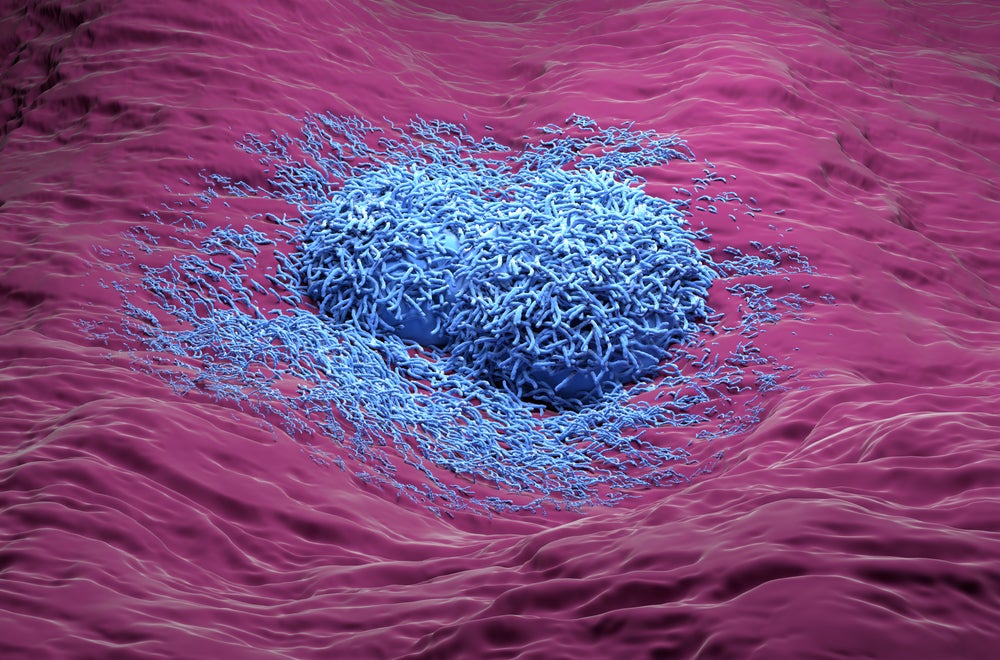
AstraZeneca has announced impressive results for its STRIDE regimen, delivering significantly improved outcomes for advanced liver cancer patients.
The treatment regimen was evaluated in the ongoing HIMALAYA Phase III study (NCT03298451), conducted with 1324 hepatocellular carcinoma (HCC) patients.

Discover B2B Marketing That Performs
Combine business intelligence and editorial excellence to reach engaged professionals across 36 leading media platforms.
Participants were randomised to receive either STRIDE or sorafenib, one of the tyrosine kinase inhibitors that comprise the current standard of care for various liver, kidney, and thyroid cancers.
After four years of follow-ups, AstraZeneca announced that STRIDE reduced the risk of death by 22% compared to sorafenib, with 25.2% of patients alive at the four-year mark compared to 15.1% with sorafenib.
While a one-in-four survival rate may not be comparable, advanced-stage HCC carries a poor prognosis. Five-year survival rates for the condition are only 7%, one of the lowest across all oncology, so even minor improvements in overall survival can make a major difference.
Despite this improvement, adverse events recorded during the trial may hinder STRIDE. Grade 3 or 4 serious treatment-related adverse events (TRAEs), including death, were experienced by 17.5% of STRIDE-treated patients versus 9.6% for sorafenib.

US Tariffs are shifting - will you react or anticipate?
Don’t let policy changes catch you off guard. Stay proactive with real-time data and expert analysis.
By GlobalDataThe US Food and Drug Administration (FDA) first approved the therapy in March 2023; however, these latest results further validate its efficacy in treating HCC.
STRIDE is a combination of two monoclonal antibodies: Imfinzi (durvalumab) and Imjudo (tremelimumab). As part of the regimen, patients are administered 300mg of Imjudo added to 1,500mg of Imfinzi, followed by further monthly doses of Imfinzi.
Imfinzi binds to the PD-L1 protein and prevents it from interacting with the PD-1 and CD80 proteins, countering a tumour’s evasion tactics and triggering an immune response. Imjudo (tremelimumab) blocks the activity of cytotoxic T-lymphocyte-associated protein 4 (CTLA-4). In doing so, it triggers T-cell activation and primes an immune response to cancer cells.
Both drugs are already approved for treating various cancers, with further trials being conducted to establish their efficacy. In particular, Imfinzi is being assessed in combinations, including with Imjudo, in liver, oesophageal and gastric cancers as part of AstraZeneca’s broader gastrointestinal cancer development programme.
Of all liver cancer cases, 75% are HCC, and nearly 50% have reached the advanced stage. This presents a clear need for additional treatment options like STRIDE. However, a steep price tag for therapies such as STRIDE may hinder its usefulness.
Instead, Chinese biopharmaceutical companies might have the edge. With the highest prevalence of HCC in China and greater flexibility in pricing, there is the incentive and ability for Chinese companies to disrupt the market.
Hengrui’s Airuika (camrelizumab, NCT03764293), Junshi Biosciences’ Tuoyi (toripalimab, NCT04523493), and CStone Pharmaceuticals’ nofazinlimab (NCT04194775) are all promising pipeline agents with the potential to make it to market.





